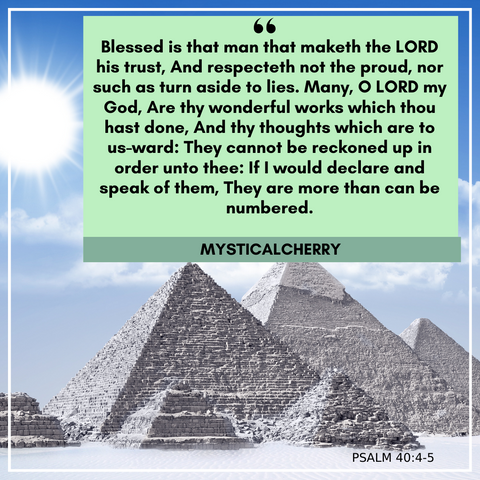Amidst the chaos of life's storms, where do we find an anchor? Is it found in the embrace of family or the comfort of friends? While putting together this piece, I find myself engrossed in an episode of "This is Us," particularly captivated by Randall's character, who battles anxiety attacks. As a boy, his adopted father was his anchor during these tumultuous times. Holding his face and telling him, "You are good; just breathe." In adulthood, with his father gone, his brother Kevin steps in to fill this vital role. A touching scene unfolds when Kevin abandons his own play's premiere to support Randall during an anxiety attack. This circle of support echoes in Randall's life, as he becomes a pillar of strength for his biological father, William, holding his face while comforting him with the same words he once heard: "You are good, just breathe," as William takes his final breaths.
This narrative leads me to ponder the inspiration behind David's Psalm 40 (KJV), a profound reflection on faith and patience amidst adversity. The Psalm stands as a timeless beacon of hope, resonating through the ages and speaking directly to the heart of every spiritual seeker on their journey.
In this exploration, we delve deep into the essence of Psalm 40, a poetic masterpiece from the Book of Psalms. As we embark on this journey, we will unravel this sacred text's historical context, uncover its thematic richness and layers, and discover its undeniable impact on our lives today. Each verse of Psalm 40 is a thread in the tapestry of spiritual wisdom, weaving together themes of deliverance, trust, and unwavering gratitude towards the Divine.
This blog is more than just an analysis; it's a journey into the heart of faith itself. Through a detailed verse-by-verse exploration, we aim to reveal the profound truths hidden within this ancient hymn. Our journey will not only deepen our understanding of its literary and theological dimensions but also offer practical insights and life lessons that are as relevant today as they were in the time of King David.
Join us as we explore how Psalm 40 speaks to the very core of our human experience, offering solace and strength in our moments of trial and a path towards a deeper, more resilient faith in the divine.

Historical Context of Psalm 40
To fully appreciate Psalm 40, it is essential to understand its historical backdrop. While the precise date of its composition remains uncertain, Psalm 40 is traditionally attributed to King David, a figure renowned not just as a monarch but also as a poet and musician. His life, marked by both triumphs and tribulations, provides a rich tapestry against which this Psalm can be understood.
The setting of Psalm 40 is likely during a period of personal crisis or national turmoil, common themes in David's life as depicted in various biblical narratives. This context is crucial as it reflects the Psalm's deep emotional and spiritual undertones — a cry for help amidst despair and a subsequent celebration of deliverance.
Culturally, the Psalm was written when Israel grappled with its identity as a nation under God. The religious landscape was marked by a transition from ritualistic sacrifices to a more personal, spiritual relationship with God. This shift is evident in the Psalm's emphasis on obedience and inner devotion over traditional offerings.
Psalm 40 also resonates with other biblical texts, particularly in its themes of patience in suffering and joy in deliverance. Similar sentiments are echoed in other Psalms and in the broader biblical narrative, illustrating a consistent thread of reliance on God throughout the scriptures.
Understanding this historical and cultural context enriches our reading of Psalm 40, offering insights into its original meaning while highlighting its timeless relevance. It reminds us that while the circumstances of our struggles may differ from those of ancient times, human emotions and the quest for divine intervention are as relevant today as they were in the era of King David. With the historical context established, we can now move on to a detailed verse-by-verse analysis of Psalm 40.
A Verse-by-Verse Analysis
Verses 1-3: Patience and Deliverance

"I waited patiently for the Lord; he turned to me and heard my cry. He lifted me out of the slimy pit, out of the mud and mire; he set my feet on a rock and gave me a firm place to stand. He put a new song in my mouth, a hymn of praise to our God. Many will see and fear the Lord and put their trust in him."
In these opening verses, the psalmist vividly describes waiting for divine intervention and being rescued from despair. The 'slimy pit' symbolizes deep distress, while being set on a rock indicates stability and safety provided by God. The 'new song' represents a transformed life of gratitude and praise, inspiring faith in others.
Verses 4-5: Trust and Divine Wonders

"Blessed is the one who trusts in the Lord, who does not look to the proud, to those who turn aside to false gods. Many, Lord my God, are the wonders you have done, the things you planned for us. None can compare with you; were I to speak and tell of your deeds, they would be too many to declare."
These verses emphasize the blessedness of trusting in God instead of relying on human pride or false idols. The psalmist acknowledges the countless, incomparable works of God, too numerous to fully recount, underscoring the awe and reverence owed to the Divine.
Verses 6-8: Obedience Over Sacrifice

"Sacrifice and offering you did not desire— but my ears you have opened— burnt offerings and sin offerings you did not require. Then I said, 'Here I am, I have come— it is written about me in the scroll. I desire to do your will, my God; your law is within my heart.'"
Here, the focus shifts from external religious rituals to internal devotion. The psalmist highlights God's preference for obedience and willingness to follow His will rather than mere ceremonial offerings. The reference to being written in the scroll signifies a deep personal commitment to fulfilling God's purpose.
Verses 9-10: Proclamation of God's Acts

"I proclaim your saving acts in the great assembly; I do not seal my lips, Lord, as you know. I do not hide your righteousness in my heart; I speak of your faithfulness and your saving help. I do not conceal your love and your faithfulness from the great assembly."
The psalmist declares his commitment to openly sharing God's righteous acts and faithfulness. This passage reflects a resolve to publicly witness God's deeds, emphasizing the importance of proclaiming His love and salvation to the community.
Verses 11-13: Plea for Mercy and Help

"Do not withhold your mercy from me, Lord; may your love and faithfulness always protect me. For troubles without number surround me; my sins have overtaken me, and I cannot see. They are more than the hairs of my head, and my heart fails within me. Be pleased to save me, Lord; come quickly, Lord, to help me."
In these verses, the tone becomes a heartfelt plea for God's mercy and aid. Acknowledging the overwhelming nature of his challenges and the burden of his sins, the psalmist earnestly seeks divine deliverance and protection.
Verses 14-17: Seeking God in Adversity

"May all who want to take my life be put to shame and confusion; may all who desire my ruin be turned back in disgrace. May those who say to me, 'Aha! Aha!' be appalled at their own shame. But may all who seek you rejoice and be glad in you; may those who long for your saving help always say, 'The Lord is great!' But as for me, I am poor and needy; may the Lord think of me. You are my help and my deliverer; you are my God; do not delay."
The closing verses juxtapose the psalmist's adversaries with those who seek God. While praying for the downfall of his enemies, he simultaneously expresses joy and hope for those who pursue the Divine. Despite his own vulnerability, he reaffirms his reliance on God as his deliverer and helper. Continuing with the thematic exploration, we'll delve into the overarching themes of Psalm 40, examining how they interweave to offer profound insights into our spiritual journey.

Thematic Exploration of Psalm 40

In the spirit of sharing inspiration, I've created a beautiful piece of art, Psalm 40 Metal Wall Art available at MysticalCherry.com
If you're interested, check it out. Remember, purchasing through this link may support the blog at no additional cost to you.
Psalm 40 is rich with recurring themes that not only reflect the personal experiences of the psalmist but also offer timeless spiritual lessons. These themes include faith in adversity, the transformation of suffering, divine deliverance, and the power of testimony.
Faith in Adversity
Throughout the Psalm, a strong undercurrent of faith amidst trials is evident. The opening verses, where the psalmist waits patiently for the Lord in a metaphorical 'slimy pit,' epitomize the essence of faith during times of distress. This unwavering trust in God, even when circumstances seem bleak, speaks to the heart of what it means to rely on the Divine in challenging times.
Transformation Through Suffering
A significant aspect of Psalm 40 is the transformation that comes through suffering. The psalmist's journey from the depths of despair to a place of stability ('set my feet on a rock') symbolizes not just physical or situational change but a profound inner transformation. This theme resonates with anyone who has experienced growth and maturation through difficult experiences.
Divine Deliverance
Central to Psalm 40 is the theme of divine deliverance. The vivid imagery of being lifted from a pit and the plea for salvation in later verses underscore a reliance on God for rescue and redemption. This deliverance is not depicted as a mere escape from trouble but as a transformative experience that leads to a deeper understanding of God's grace and power.
Power of Testimony
Psalm 40 also highlights the importance of bearing witness to God's acts. The psalmist's commitment to proclaiming God's righteousness and faithfulness in the assembly underlines the power of sharing one's spiritual experiences. This act of testimony serves not only as a personal declaration of faith but also as an encouragement and inspiration to others.
Contrast Between Human Frailty and Divine Strength
Another key theme is the contrast between human frailty and divine strength. The psalmist openly acknowledges his limitations, sins, and neediness, juxtaposing these with the infinite might and mercy of God. This contrast serves to magnify God's greatness and the comfort that comes from relying on a power greater than oneself.
Role of Worship and Praise
Finally, the role of worship and praise in the believer's life is a recurring element in Psalm 40. The new song of praise and the public acknowledgment of God's deeds highlight the importance of worship not just as a religious practice but as an integral part of the believer's response to God's works and character.
These themes not only provide a deeper understanding of Psalm 40 but also offer practical applications for our lives today. In the next section, we will focus on how the lessons and themes of this Psalm can be integrated into our modern lives, offering guidance and inspiration.
Personal Application and Relevance Today
Psalm 40, while ancient in its origins, speaks volumes about the timeless human experience and our relationship with the Divine. Its themes of faith, patience, transformation, and praise resonate deeply with contemporary challenges and spiritual quests.
Embracing Patience in Troubled Times
One of the most profound lessons from Psalm 40 is the virtue of patience in adversity. In a world where instant solutions are often sought, the Psalm reminds us of the value of waiting for divine timing. This patience is not passive but a dynamic and active trust in God's plan, even when the way forward is unclear. In our own lives, embracing this patience can bring peace and resilience in facing life's uncertainties.
Finding Strength in Divine Deliverance
The theme of divine deliverance is especially relevant in moments of despair or when feeling trapped in difficult circumstances. Psalm 40 encourages a perspective shift – from focusing on our limitations to relying on God's strength and salvation. It reassures that no situation is too dire for divine intervention, offering hope and encouragement to those who feel overwhelmed.
Transformative Power of Trials
The transformation through suffering, as depicted in Psalm 40, offers a powerful perspective on personal growth. It suggests that trials and hardships can be catalysts for spiritual and emotional growth, leading to a deeper understanding of ourselves and our relationship with God. This perspective can help us find meaning and purpose in our struggles, viewing them as opportunities for development rather than mere obstacles.
The Impact of Sharing Our Spiritual Journey
The psalmist's commitment to proclaiming God's deeds underscores the importance of sharing our spiritual experiences with others. In doing so, we not only affirm our own faith but can also inspire and encourage others in their spiritual journey. This act of testimony is a powerful tool for building community and strengthening collective faith.
Living a Life of Worship and Praise
Finally, Psalm 40 highlights the significance of worship and praise in our daily lives. It teaches that worship is not confined to religious rituals but is a continuous, living expression of gratitude and reverence towards God. Integrating this attitude of worship and praise into our daily routine can transform our outlook on life, fostering a deeper sense of joy and contentment. Psalm 40's enduring relevance lies in its ability to speak to the core of our spiritual needs and challenges, offering timeless wisdom and guidance.

If you journal, you can use these Questions for Journaling and Reflection:
As we delve into the richness of Psalm 40, journaling can be a powerful tool to reflect on its impact on our lives. Here are some questions to ponder and journal about, helping to internalize the messages and apply them to your personal spiritual journey:
- Patience in Adversity: Reflect on a time when you had to wait patiently in a difficult situation. How did this experience shape your understanding of faith and trust in God? How can you apply the lesson of waiting patiently for the Lord in your current life circumstances?
- Divine Deliverance: Can you recall an instance where you felt a profound sense of being 'lifted' from a challenging situation? How did this experience change your perspective on divine intervention and help?
- Transformation Through Trials: Consider a difficult period in your life that led to personal growth or transformation. What did you learn about yourself and your relationship with God during this time? How did this experience mirror the transformative journey described in Psalm 40?
- Sharing Your Story: Think about the importance of sharing your faith journey with others. How can you use your experiences to encourage and uplift those around you? What part of your spiritual journey might serve as a testament to God's faithfulness and love?
- Living a Life of Worship: How do you incorporate worship and praise into your daily life? What are some ways you can enhance this practice to maintain a continuous attitude of gratitude and reverence towards God?
- Personal Resonance: Which verse or theme in Psalm 40 resonates with you the most and why? How does this particular aspect of the Psalm speak to your current spiritual needs or challenges?
- Applying Psalm 40 Today: How can the lessons from Psalm 40 be applied to the modern world? In what ways do you see its themes being relevant to contemporary societal issues or personal challenges?
These questions facilitate a deeper personal engagement with Psalm 40, encouraging reflection, introspection, and application of its timeless wisdom in our everyday lives.
In our journey through the depths of Psalm 40, we've explored its historical backdrop, delved into a verse-by-verse analysis, unearthed its thematic richness, provided questions for journaling and considered its application in our lives today. This Psalm, attributed to King David, offers timeless insights into faith, patience, and the transformative power of divine intervention.
Psalm 40 teaches the importance of waiting on God during trials, the transformative potential of suffering, the value of obedience and personal devotion, and the power of openly sharing one's spiritual journey. It also emphasizes living a life of continuous worship and praise.
As we reflect on the enduring wisdom of Psalm 40, let us contemplate how it applies to our contemporary lives, providing comfort and guidance and challenging us to grow in our faith. This Psalm not only offers solace in times of trouble but also invites us to examine the depth of our reliance on the divine. So in Amidst the chaos of life's storms, where do we find an anchor?


